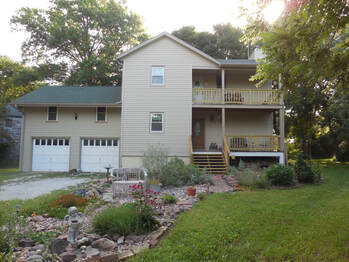The state unemployment during fall of 2020, the year we all want to forget, was at the same low rate of three percent, equal to that of 2019. I find that amazing. Our people are resilient and resourceful. This past March of 2021, the rate dipped a bit to 2.9%.
A quick search of Wikipedia revealed: “The term sense of place has been used in many different ways. It is a multidimensional, complex construct used to characterize the relationship between people and spatial settings.” Ten definitions follow.
Combined with the geography of Nebraska, my sense of place is where God sets me down, preferably among His people. Here is an example of women coming together:
Most of them were strangers to me, but friends of the family. I greeted them at my mother’s door. “Please come in,” I welcomed, and then I’d move my pregnant body back a step or two.
“I’m so sorry.”
“Our hearts go out to your family.”
“If there’s anything I can do.”
“It’s all in God’s hands.”
“Oh, my dear. I’ll take that. How close are you?”
I acknowledged their comments with thank-yous and responded to questions about how soon the baby was due. There I stood in my mother’s springtime kitchen, overwhelmed by the community’s outpouring of love.
A baby boy nestled in my womb, I was sure of it. He rode low and heavy, and protruded straight out front. Those were the days before ultrasounds, but I knew. And his middle name would be William, the same as my husband’s name and my father’s middle name.
My father, whose crooked smile I could only see in my mind’s eye, no longer lived. An unknown killer had taken his life while he was still considered to be in his prime. I often stopped mid-task, as I imagined his body dumped in the ditch a matter of feet from the country driveway. The words “murder” and “unsolved homicide” came later, when we remembered Dad.
For now, the small Orchard, Nebraska, community was in shock. The town had its share of men who closed out the tavern, but none before Dad had been killed on his way home.
Comforting arms and kind words of women I didn’t know attempted to bring me back to reality, but I was living in some kind of suspension, somewhere else. These women flowed through the kitchen to give of themselves to my mother and brothers and sister and me, just as the lifeblood flowed through my body to my babe.
And the women kept coming: from St. Peter’s Lutheran Church, from farms in the Orchard area, and from the farms of my Neligh childhood. Those women I knew—like Marcella Hughes and Lucile Backhuus, whom Mom had supported after they lost their sons.
Later during a quiet moment in my mother’s kitchen, I reflected on an earlier time. I was a totally different person from the teen I’d been eleven years before. In 1964 neighbors had come, rumbling in from east and west, bringing trucks, tractors, and cutters to chop Dad’s corn into silage while he recuperated from back surgery. Those men brought in the bounty from the fields; and the women provided sustenance, feeding their husbands and sons and neighbors, just as the chopped grain would sustain our milk cows through the upcoming winter months.
The neighbor women came yet a third time, following my mother’s death in August 1978. Through my mother’s late summer kitchen, they streamed…*
Note: a longer version titled “Ongoing Sustenance” appeared in Crazy Woman Creek, 2004.


 RSS Feed
RSS Feed
